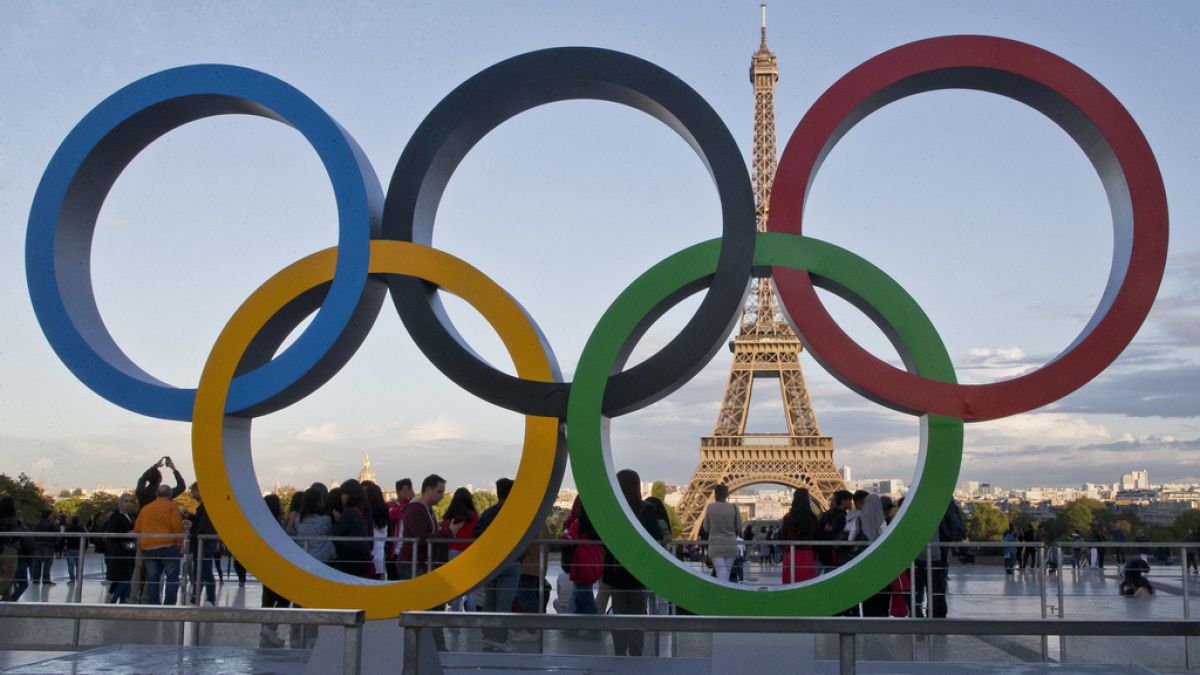The International Olympic Committee (IOC) has been lauding itself for having achieved full gender parity for the time in history. But is that the reality?
With less than four months before the much-anticipated event, the International Olympic Committee emphasises the event will be the first gender-equal one in history.
One of the hashtags used in the promotional material for the 2024 Paris Summer Games is #GenderEqualOlympics.
These upcoming Olympic Games will indeed have a 50 per cent participation rate between men and women.
However, in the 2021 Tokyo Olympics, 48.8 per cent of participants were women – very close to achieving full parity.
But in certain disciplines, the parity is not respected. Wrestling, for example, is a sport where only men compete.
On the other hand, women are the only ones to participate in rhythmic gymnastics.
Therefore the IOC has modified certain events. The 50km walk previously reserved for men will instead be a mixed relay race.
For women, one weight class has been added for the boxing event, according to the IOC's website.
"Parity is not the same as gender equality"
However, there are still more events reserved for men’s sports than women’s during these upcoming summer games -- 157 men's events compared to 152 women's events.
According to Michele Donnelly, assistant professor of sports management at Brock University, numbers alone don’t tell the whole story.
"Parity is not the same thing as equality. It's a numerical equality. Gender equality is a much fuller understanding of men and women, not only having the same number of opportunities but having the same conditions of participation," she told Euronews.
Michele Donnelly affirmed that gender-based differences are still very pervasive during the Games and can include the length of races, the size and weight of equipment (think of a javelin or shotput), and also uniforms required for men and women.
Some sports do exist during the Games that have no gender differentiation but are rare. They include disciplines such as archery, triathlon and badminton.
"Claims that are being made right now [of gender equality] are very concerning because they're sending the message that we're there, we've achieved gender equality and we just haven't," she explained.
Moreover, women remain hugely underrepresented during the Olympics as coaches or technical officials.
Michele Donnelly also worries that the goal of parity within the Games will remove opportunities for men, to add opportunities for women rather than simply creating additional events for women as athletes.
"That doesn't meet any definition of gender equality that I'm familiar with. Taking away from one group to add to another group is not equality. And it means that the athletes are the ones who are being punished," she said.
A long road to gender parity
Gender parity has been rapidly increasing within the Games considering the hurdles women had to overcome to be part of the Olympics.
The founder of the IOC, Baron Pierre de Coubertin, barred women from competing in the first modern 1896 Olympic Games.
In 1900, 22 women were welcomed to compete in five women’s sports. Women did not make up more than 10 per cent of participants until 1952.
It was not until 2014 that the IOC added full gender parity as one of its goals.
